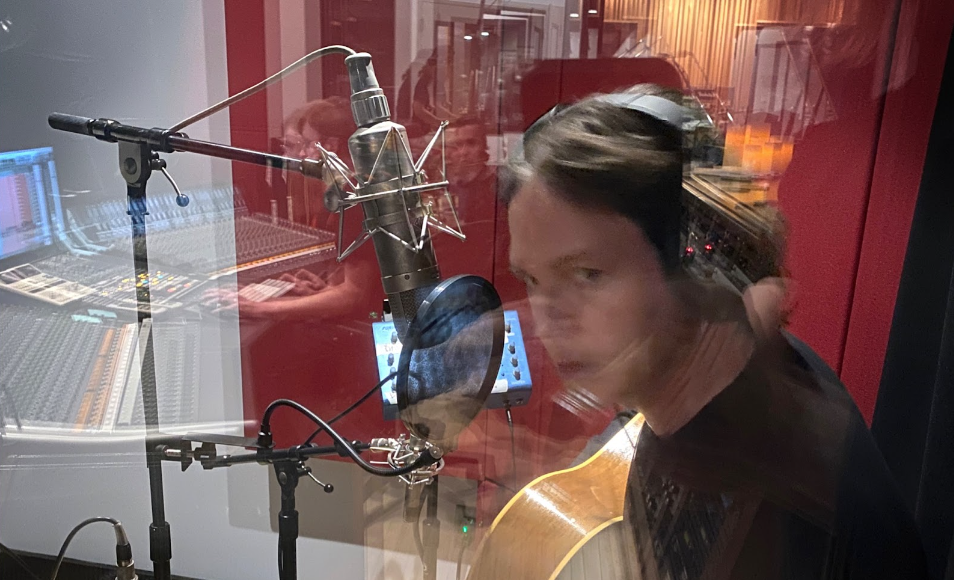I’m talking to Third Eye Blind frontman Stephan Jenkins by phone as he walks around the new Jean-Michel Basquiat exhibit in Manhattan’s Starrett-Lehigh Building, which features more than 200 pieces—including many never before seen by the public—from the collection of the artist’s family. He’s feeling sensations that only great art can produce. He’s shaken. He’s inspired.
“I got Basquiated,” he says. “It’s a wonderful feeling.”
With Third Eye Blind’s first acoustic album coming out June 24, I’m wondering how it took his band a quarter-century to make one, considering their multi-platinum, self-titled debut album—which featured hit singles like “Semi-Charmed Life,” “How It’s Going to Be,” “Graduate” and “Losing a Whole Year”—came out in 1997, around the height of the ’90s unplugged craze.
“I don’t know,” he says, with a bit of a chuckle, still fired up by the art around him. “But we’re gonna make another one. I just think I’m in a maker’s mindset now, you know? Basquiat, you just see this huge, huge amount of output that he did, and I think that I have to be in a rock ’n’ roll mindset, which is I don’t give a fuck what you think, this is my voice and I’m putting it out there. And that’s really how it has to be. That’s what makes rock music immediate and erotic and all the things that we like about it. Years ago, probably, I got myself somehow kicked out of that mindset, and now we’re just kind of gleefully creative.”
The upcoming Third Eye Blind Unplugged features acoustic reworkings of those four early singles, as well as subsequent hits like “Never Let You Go” and “Blinded,” as well as deeper cuts like “Palm Reader” and “God of Wine.” Though the San Francisco band became known around the world for high-energy anthems when “Semi-Charmed Life” became a Top 40 hit in six countries, that sunny sound has sometimes obscured very dark lyrics. On the new acoustic album, the songs get a more somber, contemplative treatment that often suits their lyrics better.
“I think there’s some element of just dealing with darkness in a way that somehow is soothing, like dark lullabies to myself,” says Jenkins.
He doesn’t consider either the electric or acoustic approach more authoritative. “These versions of these songs are just as valid to me as the ones that are on their original albums,” he says. “Because there is no ultimate version of the song. There’s the thing that I kind of download from the mystic, from some kind of mysticism, to what we record, and getting close to that. And you never arrive. So I think that’s what made [the Unplugged album] like, ‘Yeah, let’s do it. Let’s make it.’”
As the band prepares for its “Summer Gods: 25 Years in the Blind” national tour, Jenkins is excited to play the band’s warm-up show for the tour in Santa Cruz—which is not only his favorite place to surf, but the place to which he traces back his surfing obsession.
“Pleasure Point was the first time I’d ever been on a wave,” he says. He was a young kid at the time, and a neighbor basically put him in a wetsuit and threw him out in the waves to fend for himself.
“I had no idea what I was doing,” he says. But whatever he did, he liked it, and it forged a deep connection with Santa Cruz, and the ocean.
“Very deep,” he says. “It goes way back. I always wanted to be a marine biologist, and actually started school in marine biology, and I worked on kelp reefs in the summers for two years, kelp reef restoration. So when I’m out there, you know, when I’m out at Steamer and floating in the swell and waiting for the sets to come—just kind of floating in the kelp and sliding on it and seeing these big fat otters that are just incredibly well fed—there’s this feeling, this moment of wellness of all things.”
He’s honoring that connection on this tour by funding carbon offsets not only for everything the band does on the road, but also for the fans driving to and from the shows. A portion of each ticket will go to help the nonprofit group SeaTrees restore the kelp ecosystem along the California coast, which has lost as much as 90% of its kelp forests in some parts of the state due to the invasive purple sea urchins.
“This little warm-up show that we’re doing at the Catalyst is going to be the launch of our initiative in restoring kelp reefs,” says Jenkins. “It goes back to when I was a little kid, it goes back to the reefs that I worked on in college. So there’s a huge through-line, and as a surfer I think it’s natural that I want to give back to this environment that is foundational to my life.”
Third Eye Blind plays the Catalyst at 8pm on Sunday, June 19. $39.50/$45. catalystclub.com.













